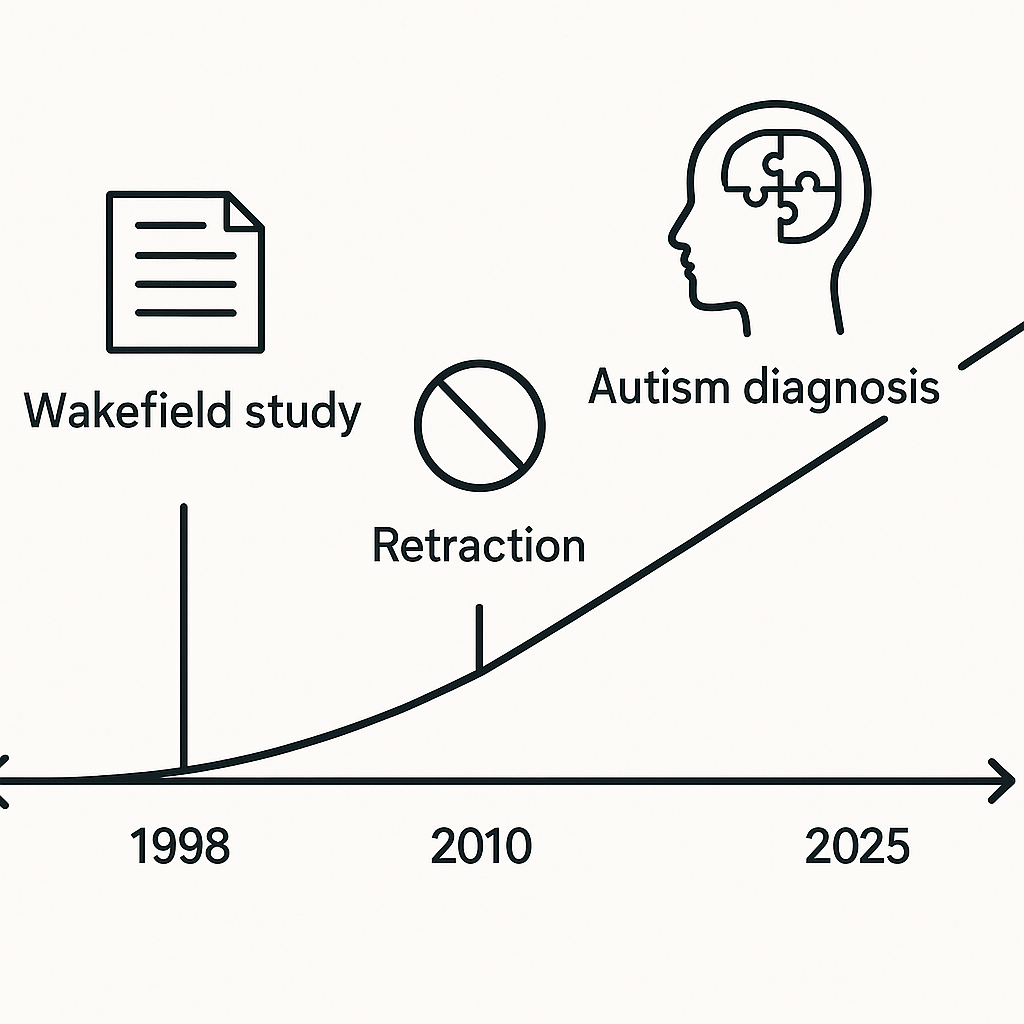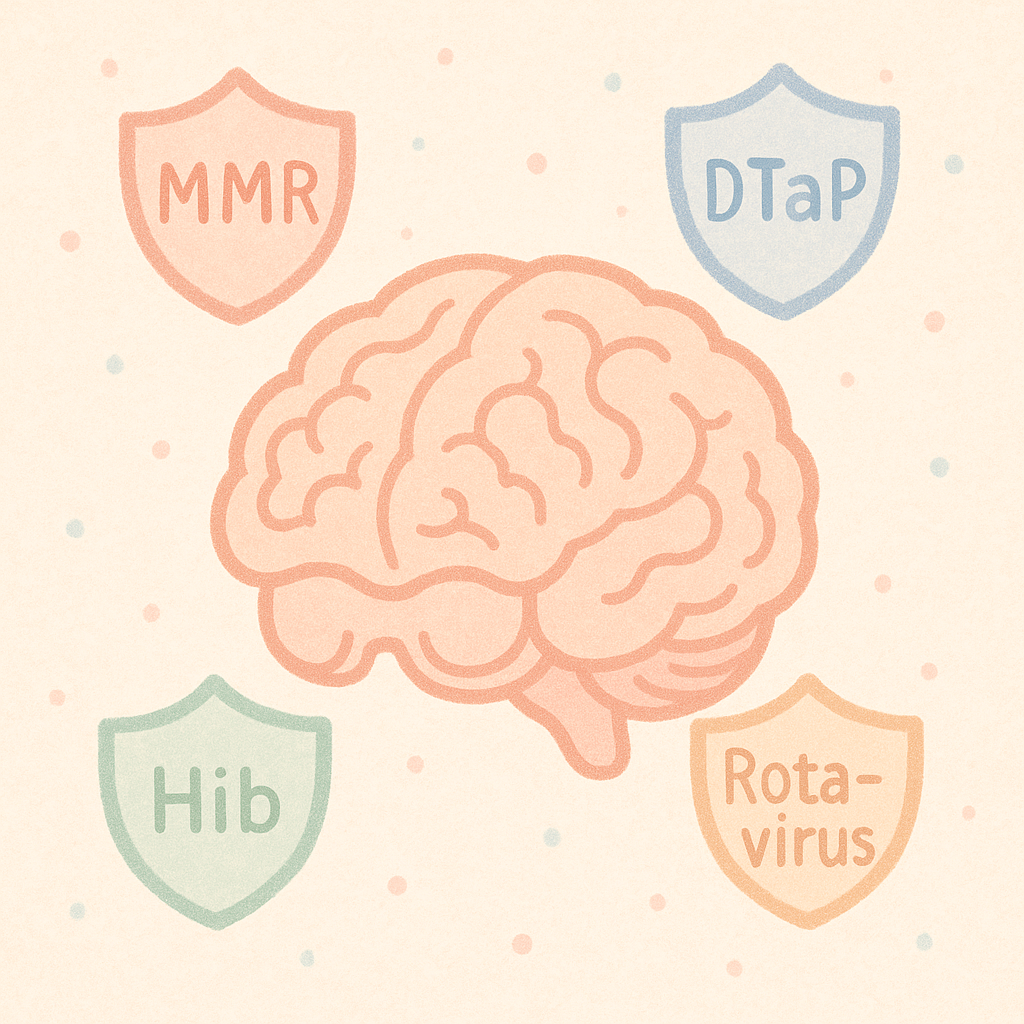More than 1.2 million children have been tracked across numerous global studies, and not one credible analysis shows a link between vaccines and autism. Red more on Vaccines for measles, mumps, rubella, and varicella as well as Safety of vaccines used for routine immunization. Yet, late-night searches and parental anxieties still raise questions about whether routine shots could derail a baby’s growing brain. If you’re here with that knot of worry, take a breath—science, decades of safety data, and real-world stories are on your side.
- Why did the idea that vaccines cause autism start, and why does it still worry parents?
- What does research actually show about vaccines and your baby’s brain development?
- Could any vaccine ingredient or schedule harm infant neurodevelopment?
- How do ongoing safety systems keep your baby protected today and tomorrow?
- Why Do Worries Persist?
- Your quick questions answered
- Bringing it all back: vaccines safeguard—and never sabotage—baby brains
Why did the idea that vaccines cause autism start, and why does it still worry parents?
The claim began in 1998 when Andrew Wakefield published a case series of 12 children, suggesting a link between the measles-mumps-rubella (MMR) vaccine and autism. This study was later retracted due to serious ethical violations and conflicts of interest, and Wakefield lost his medical license. Despite this, the myth persisted, fueled by media headlines, emotional anecdotes, and the timing of autism diagnoses, which often occur between 12–24 months—close to key vaccinations.
Recent articles highlight how this retracted study from the 1990s undermined trust in vaccines and led to a persistent myth as noted in The Evidence on Vaccines and Autism and Debunked myths that vaccines cause autism. For example, in Japan, where the MMR vaccine was withdrawn, autism rates continued to rise, proving that the timeline, not the vaccine, drove perceptions as noted in No effect of MMR withdrawal on the incidence of autism. Myths can stick, much like misconceptions about missed tummy time affecting motor skills, but skipping vaccines robs babies of infection-fighting practice without reducing autism risk.
See Gross Motor Milestones robs them of crawling practice.

What does research actually show about vaccines and your baby’s brain development?
Vaccines have no negative effect on neurodevelopment—and they often boost it indirectly. Key evidence parents find reassuring includes:
- A meta-analysis of 1.26 million children found zero association between any vaccine or ingredient and autism as in Safety of vaccines used for routine immunization.
- A Danish cohort of 657,461 children showed identical autism rates in vaccinated and unvaccinated groups.
- Vaccinated toddlers averaged 0.3 more years of schooling by age 12, likely because they avoid brain-damaging diseases.
Think of vaccines as an immune “workout.” Just as purposeful play in 5 Baby Exercises strengthens neural circuits, vaccines train the immune system without risking infection-related brain injury. Studies consistently confirm that vaccines do not cause autism, and delaying or skipping them only increases the risk of preventable diseases as highlighted on Measles (Rubeola) for Healthcare Professionals.

Could any vaccine ingredient or schedule harm infant neurodevelopment?
No routine ingredient or timing has shown a credible neurodevelopmental risk. Quick facts parents often ask about:
- Blood-Brain Barrier: Fully functional from birth, it blocks large molecules, ensuring vaccine components remain in the bloodstream, not the brain.
- Aluminum Salts: Used as adjuvants, aluminum is quickly cleared—over 75% within two weeks—and levels in vaccines are lower than in breast milk or formula. Visit Aluminum in Vaccines.
- Thimerosal: Removed from U.S. pediatric vaccines in 2001, with autism rates continuing to rise. MMR never contained thimerosal. See Thimerosal and Vaccines.
- Combination Shots: Today’s schedule exposes babies to fewer than 200 antigens—far fewer than the 3,000+ they encounter daily from their environment.
Newer vaccines, like those for COVID-19, undergo rigorous safety monitoring, including through systems like VAERS and V-safe, ensuring no red flags for neurodevelopmental risks as per Vaccines Do Not Cause Autism.
A healthy gut also filters and educates the immune system. Learn how microbes support cognition in Baby Gut Health.
How do ongoing safety systems keep your baby protected today and tomorrow?
Real-time surveillance catches even rare problems long before they reach your nursery.
Current layers of protection include:
- Pre-licensure trials with tens of thousands of participants.
- U.S. VAERS and Vaccine Safety Datalink, analyzed weekly.
- WHO coordination across 170 countries, with signals reviewed quarterly.
- Large follow-up studies, like Finland’s 1.8 million-child, 14-year study showing zero autism link after MMR.
- Ingredient audits whenever formulations change.
These systems ensure that vaccines remain safe and effective, with identical safety profiles across diverse populations.
Why Do Worries Persist?
Despite the overwhelming scientific evidence, parental concerns continue due to media influence, emotional anecdotes, and the coincidence of diagnosis timing with vaccination schedules. Recent reports highlight how debunked myths still increase stigma and vaccine hesitancy as noted in Debunked myths that vaccines cause autism and Autism-vaccine link debunked. For example, a 2025 Guardian article notes that the CDC’s decision to study the link again has legitimized stigma around both vaccines and autism. Additionally, a 2022 Mayo Clinic article emphasizes that vaccines do not cause autism, debunking the myth that has been amplified by misguided scientists and parent groups.
Your quick questions answered
-
Can multiple shots overwhelm my baby’s immune system?
No. An infant’s immune system could handle roughly 10,000 new antigens at once; the full schedule uses a fraction of that load. -
Did removing thimerosal lower autism rates?
No. Autism diagnoses continued to rise after 2001, proving thimerosal was never the cause. -
Is delaying shots safer?
No. Delays double measles risk without reducing autism. Timely vaccination offers the best protection. -
Could vaccines trigger regression in a child already at risk?
Evidence says no. Studies of siblings and high-risk infants show vaccination does not trigger or worsen autism symptoms. -
What’s riskier: vaccinating or skipping?
Skipping is far riskier. Diseases like measles cause encephalitis in 1 in 1,000 cases—far higher than any serious vaccine reaction.
Bringing it all back: vaccines safeguard—and never sabotage—baby brains
Decades of data, an intact blood-brain barrier, and continuous global monitoring point to one conclusion: timely immunizations protect your child’s cognition today and open doors to learning tomorrow. Still nurturing that growing mind? Explore how Physical Activity Boosts Your Baby’s Brain for more ways to support thriving development. Feel confident, stay curious, and know every on-time shot is a gift to your baby’s future and your community’s health.